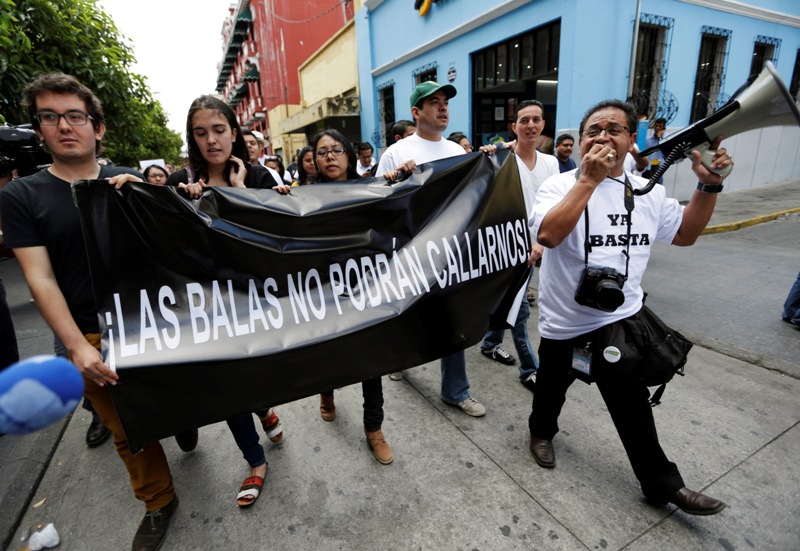The daughter of a veteran Guatemalan radio journalist gunned down on June 25 by unidentified attackers was herself fatally shot on Tuesday, prompting the International Press Institute (IPI) to call on authorities to do more to protect journalists and bring their killers to justice.
Lindaura Aceituno, daughter of Álvaro Alfredo Aceituno López and a manager at a local mall, was in her car with her young daughter in the south-eastern city of Coatepeque, Quetzaltenango department, when unidentified assailants on a motorbike shot her several times.
Aceituno, 36, died after being taken to a hospital. Her daughter was also shot, but is reportedly in stable condition. The motive for the killing was not immediately known and police did not say whether it might be linked to her father’s murder.
Álvaro Alfredo Aceituno López, director of local station Radio Ilusión, was gunned down while walking in a street close to his home in Coatepeque. The gunmen shot Aceituno López, 65, several times at close range, at least once in the head, before escaping in a car. The journalist was rushed to a hospital, where he died the same day. According to colleagues, he had not mentioned receiving any threats and the motive for his killing remains unknown.
IPI Director of Advocacy and Communications Steven M. Ellis expressed concern that the death of Ms. Aceituno, coming as it does within weeks of her father’s murder, may have been linked to Aceituno López’s work as journalist. A journalist of over 30 years, Aceituno López presented the news on his radio programme “Acontecer Coatepecano” and was known for his criticism of local municipal officials.
“Our thoughts go out to the family and friends of both Ms. Aceituno and her father,” Ellis said. “We urge the authorities to conduct a thorough investigation into both killings and to do everything possible to bring those responsible to justice. We also reiterate our support for the demands of Guatemalan journalist groups who wish to see the establishment of a special protection mechanism for journalists in their country.”
In 2012, during the country’s Universal Periodic Review before the U.N. Human Rights Council, Guatemala’s government pledged to create such a mechanism. However, local journalist organisations have raised concern that the process has stalled. They also claim that they have been excluded from contributing to the process of creating a protection mechanism.
“Guatemala continues to be one of the most dangerous countries in Latin America for journalists to carry out their profession,” Ellis noted. “According to IPI’s Death Watch, at least 13 journalists have been killed in relation to their work in the country in the past 10 years.”
On June 7, Victor Hugo Valdez Cardona, head of a cultural programme on the local cable network TL-COM, was shot dead by two unidentified attackers on a motorcycle while walking with his teenage grandson in the eastern city of Chiquimula, near the border with Honduras. The motive for the killing remains unknown.
Early this year, Mario Roberto Salazar Barahona, director of radio station Estéreo Azúcar, was shot dead in his car on March 17 in the southern Guatemalan department of Jutiapa. The motive in that case is also unclear.
